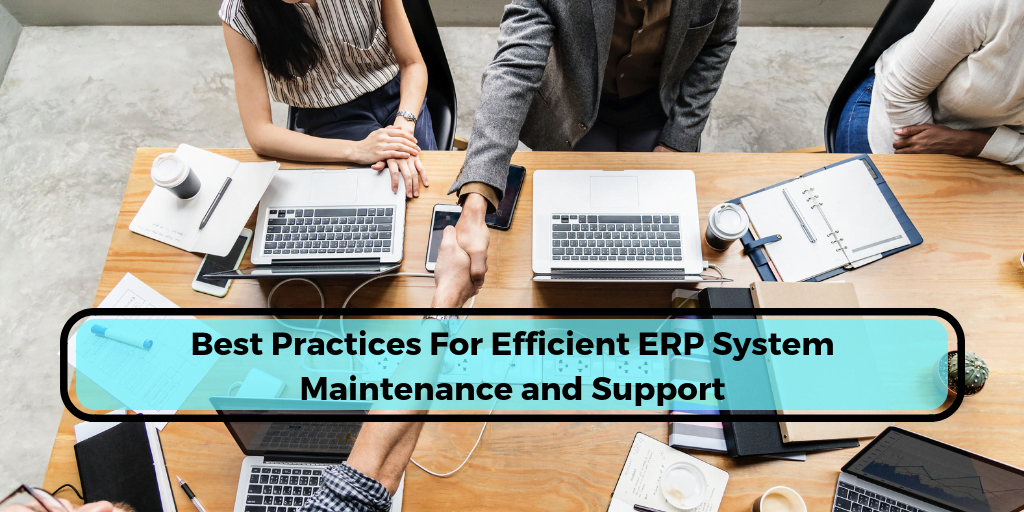6 Best Practices For Efficient ERP System Maintenance and Support


Since its advent in the early 1990s, ERP has become a powerful business management and automation tool. An ERP system is beneficial if it is monitored, maintained securely, and updated regularly. It will propel business operations with ease and transparency. It enables C-level executives to make their decisions quickly and effectively.
Transitioning to a process of automation and data synchronization through an ERP system will give an edge over the competition. However, there are a few challenges to consider before choosing an ERP system partner. Often, organizations seek help from a VAR or a third-party consultant to maintain the system. Having a trusted ERP partner will avoid workflow disruptions.
Get familiar with your ERP system by reading the manuals and other documents provided. Understand how your ERP will yield a competitive advantage over others. Research other businesses that have implemented the same ERP system, and look for customer successes and reviews of your service provider. Based on analyses, cloud-based ERP systems are better than on-premises systems in terms of saving upfront investment.
22% of the companies that opt for cloud-based ERP solutions appreciate cost savings as a result.
Every organization should weigh the short-term and long-term maintenance costs of an ERP system. Having a roadmap of how long you will go before next upgrade, and the effective life cycle of the platform will save a substantial amount of maintenance cost. Make sure your ERP software supports minor changes and technology adoptions for effective business planning and operations.
Assess the internal capabilities of your IT team. Some businesses have in-house ERP experts but others do not. If your team does not have the bandwidth, or knowledge, to maintain the ERP then it is highly recommended to choose a third-party consultant who can support you. For some companies that use only a portion of the full spectrum of features available in the system, it might make sense to have an internal team instead of a hiring 3rd party consultants.
SLAs are another important factor to consider in the maintenance of an ERP. An SLA defines how quickly your service provider will respond to a problem. Read the T&Cs of your contract to avoid extensive disruptions and high costs when support is needed.
Security is one of the most daunting aspects of an ERP system. An ERP that runs on outdated security protocols is prone to cyber attacks, whether it is on-premises or cloud-based. Choose an ERP system that can easily be updated with the latest security protocols. Know how security incidents were prevented or handled in the past.
A major driving factor in ERP implementations is to attain the best user experience. Talk to your employees, customers, and consultants for suggestions related to improving security and performance. Know how updates were successfully applied in the past. Staying up to date will undoubtedly enhance user experience.
89% of respondents expect that the number of cyber-attacks against ERP systems will grow in the next 12 months by 33%.
To maintain the ERP system in a healthy and secure environment regular system checkup is mandatory. When required, seek help from an expert before the issue worsens. Establish a governance plan for continuous monitoring of the ERP system. Have a dedicated team to monitor and maintain the ERP, or coordinate with your ERP consultants.
Amzur Technologies is the leading NetSuite ERP solution provider. Talk to us to implement an effective ERP solution for your business needs.
